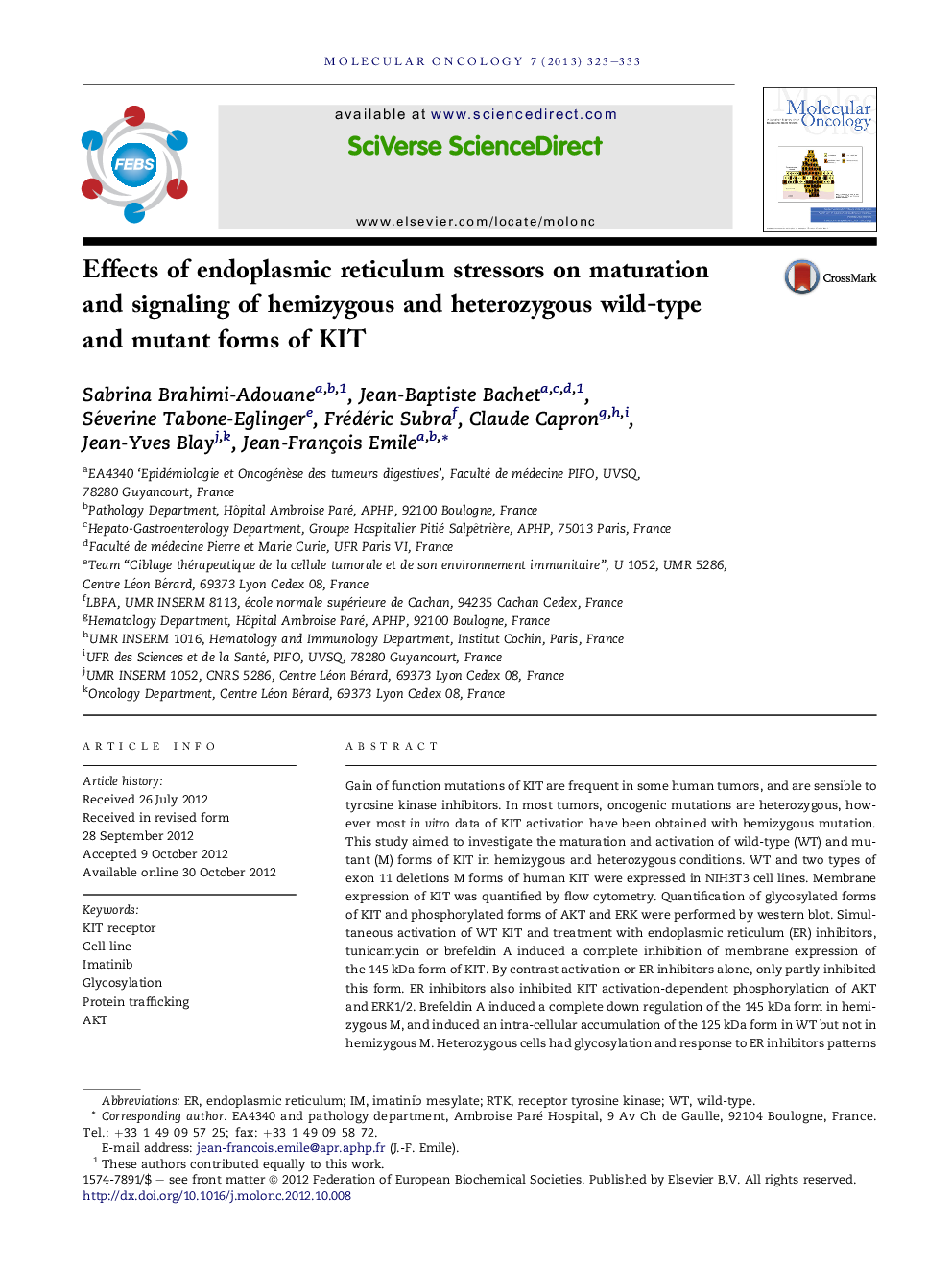| Article ID | Journal | Published Year | Pages | File Type |
|---|---|---|---|---|
| 2145704 | Molecular Oncology | 2013 | 11 Pages |
Gain of function mutations of KIT are frequent in some human tumors, and are sensible to tyrosine kinase inhibitors. In most tumors, oncogenic mutations are heterozygous, however most in vitro data of KIT activation have been obtained with hemizygous mutation. This study aimed to investigate the maturation and activation of wild-type (WT) and mutant (M) forms of KIT in hemizygous and heterozygous conditions. WT and two types of exon 11 deletions M forms of human KIT were expressed in NIH3T3 cell lines. Membrane expression of KIT was quantified by flow cytometry. Quantification of glycosylated forms of KIT and phosphorylated forms of AKT and ERK were performed by western blot. Simultaneous activation of WT KIT and treatment with endoplasmic reticulum (ER) inhibitors, tunicamycin or brefeldin A induced a complete inhibition of membrane expression of the 145 kDa form of KIT. By contrast activation or ER inhibitors alone, only partly inhibited this form. ER inhibitors also inhibited KIT activation-dependent phosphorylation of AKT and ERK1/2. Brefeldin A induced a complete down regulation of the 145 kDa form in hemizygous M, and induced an intra-cellular accumulation of the 125 kDa form in WT but not in hemizygous M. Heterozygous cells had glycosylation and response to ER inhibitors patterns more similar to WT than to hemizygous M. Phosphorylated AKT was reduced in hemizygous cells in comparison to WT KIT cells and heterozygous cells, and in the presence of brefeldin A in all cell lines. Effects of ER inhibitors are significantly different in hemizygous and heterozygous mutants. Differences in intra-cellular trafficking of KIT forms result in differences in downstream signaling pathways, and activation of PI3K/AKT pathway appears to be tied to the presence of the mature 145 kDa form of KIT at the membrane surface.
► KIT mutations are heterozygous in most tumors. ► In vitro experiments were almost always performed in hemizygous cell models. ► Glycosylation patterns of heterozygous cells are different than of hemizygous cells. ► Wild-type KIT is associated with modifications in intra-cellular trafficking. ► Activation of downstream signaling pathways is influenced by the wild-type allele.
